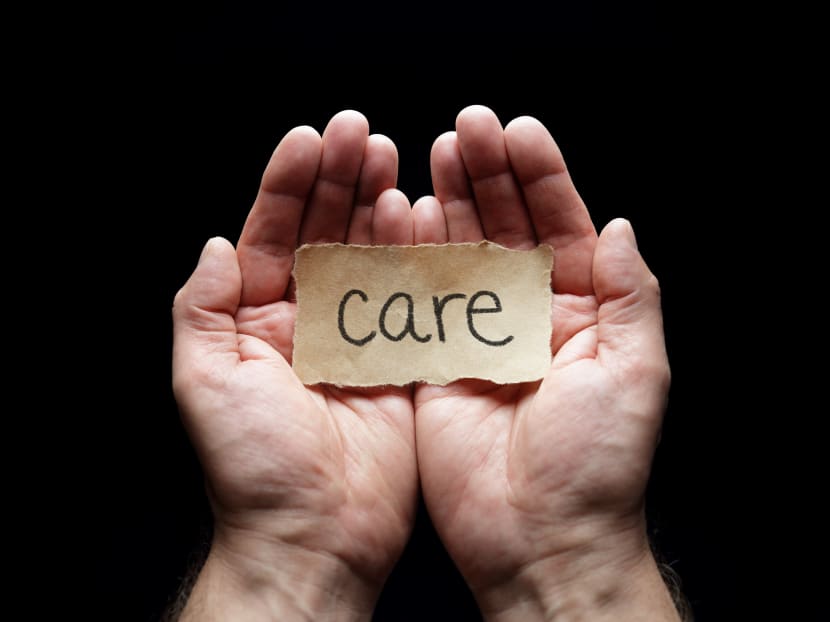Society must recognise potential mental health crisis following Covid-19, says Singapore doctor
SINGAPORE — Coming close on the heels of the economic fallout from the Covid-19 pandemic is another troubling development that countries must keep a watch for: The mental health of their population.
- Scientists are discovering that Covid-19 patients can exhibit confused behaviour
- Lockdowns and the unknown characteristics of coronavirus have fuelled anxieties and affected mental health
- Mental health expert offers tips on how to keep things in balance
SINGAPORE — Coming close on the heels of the economic fallout from the Covid-19 pandemic is another troubling development that countries must keep a watch for: The mental health of their population.
Scientists are starting to recognise that Covid-19 causes a form of oxygen deprivation known as “silent hypoxia”. It causes little discomfort but may result in confused behaviour among the growing number of infected patients worldwide.
The loss of smell associated with the disease may also have a lasting impact on patients’ ability to enjoy food, which may impact their quality of life.
Dr Cornelia Chee said: “We are only just beginning to see how it affects the mental health of us as individuals and as a species.”
Dr Chee is head of psychological medicine at the National University of Singapore (NUS) Yong Loo Lin School of Medicine and the National University Health System (NUHS).
She was giving a talk on Thursday (July 9) during the 13th edition of the webinar series titled, Covid-19 Updates from Singapore, which is jointly organised by the World Health Organization’s Global Outbreak Alert and Response Network, NUS Yong Loo Lin School of Medicine and the NUHS.
Since the National Care Hotline was set up in Singapore in April, some 23,000 calls have been received from people requiring various financial and psychological schemes as a result of Covid-19. There are close to 800 counsellors, psychiatrists, social workers or public officers manning the hotline round the clock.
Dr Chee said that the mental health of society as a whole has been affected by the fear of the unknown aspects of the new coronavirus such as how it spreads as well as by government-imposed lockdown measures.
In Singapore, where schools were closed for two months starting April until it was progressively opened in June, parents also had to suffer the added stresses of having to juggle working from home and supervising their children.
“I had a patient and the first thing she did the moment she came in was burst into tears. It was awful” Dr Chee said. “She has three children, under nine, and they were all over her when she was trying to do her work.”
Dr Chee added that it was a “mistake” for the Government to remove psychological treatment from the list of “essential services” exempted from workplace closures in early April as part of safe distancing restrictions.
The Ministry of Health re-categorised these as essential services about three weeks later, following public calls from mental health professionals.
The silver lining, she said, was that Singapore was better prepared compared to when the severe respiratory acute syndrome (Sars) hit in 2003.
The National Care Hotline set up in April, for instance, was a good approach towards tackling mental health. Dr Chee also said that the Government’s approach towards the panic-buying behaviour that broke out in the early stages of the outbreak was timely and Prime Minister Lee Hsien Loong’s televised address gave the reassurance that people needed.
In the early stages of the outbreak, a study done on medical healthcare workers in Singapore that was published in the Annals of Internal Medicine in April also showed a lower prevalence of post-traumatic stress symptoms among the workers, she added.
However, because Covid-19 is showing itself to recur in waves, society needs to be prepared for a prolonged drag on mental health.
Dr Chee outlined some strategies that leaders and individuals can take to tackle the mental health recovery journey ahead:
Combat misinformation
Take up and practise relaxation techniques such as meditation and mindfulness exercises
Find new ways of connecting socially during periods of isolation
Find ways to regain control of small areas of your life, such as developing new hobbies
Choose gratitude, focusing on things to be grateful for
There has been increasing evidence that mindfulness exercises help stave off anxiety, she said, because it helps people focus on the present, rather than overthink into the future or the past.
“This is very important when we are facing situations where things are very uncertain and we can't really control things,” she said.
Dr Chee added that as more people are staying home because of Covid-19, social media may prove to be beneficial to mental health, despite commonly regarded belief from earlier research that showed more time spent on social media being correlated with more mental health problems.
“It’s actually more complex than that,” she said. “I think for some people, it can be a real lifeline.”
Asked for advice by an audience member on how working mothers can juggle working from home and taking care of their children, Dr Chee referred to a recent NUS study that showed working mothers spend twice as much time on housework than fathers on weekdays.
“We need to involve fathers,” she said. “I think men can step up more.”












